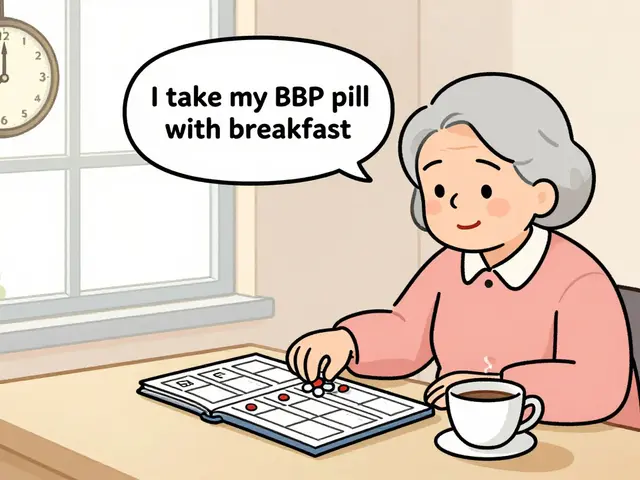Erlotinib (Tarceva): What You Need to Know
Erlotinib is an oral cancer drug that blocks the EGFR protein, which helps some tumors grow. Doctors commonly prescribe it for non‑small cell lung cancer (NSCLC) with EGFR mutations and, in specific cases, for pancreatic cancer with chemotherapy. If you or a loved one is starting erlotinib, this page gives clear, practical advice so you can use it safely and spot problems early.
How to take erlotinib
Typical dosing is 150 mg once daily for NSCLC; when used with gemcitabine for pancreatic cancer the dose is often 100 mg. Take erlotinib on an empty stomach—at least one hour before or two hours after food—to keep absorption steady. Swallow tablets whole with water.
Watch for medicines and habits that change erlotinib levels: strong CYP3A4 inhibitors (like certain antifungals, some antibiotics) can raise erlotinib levels; strong inducers (like rifampin or St. John's wort) can lower them. Smoking also lowers erlotinib exposure and can reduce effectiveness—tell your doctor if you smoke. Avoid proton pump inhibitors when possible because higher stomach pH can reduce absorption; if you must use antacids, separate them by several hours.
Common side effects and what to do
The most common problems are skin rash and diarrhea. A red, acne‑like rash on the face, chest, or scalp is common and often a sign the drug is working. Treat mild rash with gentle soap, moisturizers, sunscreen, and your doctor may add topical steroids or short courses of antibiotics if needed. Call your care team for severe or painful rashes.
Diarrhea can be sudden and serious—start loperamide at the first loose stool, drink salty fluids, and contact your doctor if it doesn’t settle within a day or if you have severe cramping or dizziness.
Less common but serious risks include liver injury and interstitial lung disease (new or worsening breathlessness, cough). Your doctor will check liver tests during treatment. Stop the drug and seek urgent care for new breathing problems, high fevers, or dark urine.
Other practical tips: avoid excessive sun exposure and use broad‑spectrum sunscreen; report any eye irritation (dry eyes, tearing); don’t take erlotinib if you are pregnant or planning pregnancy without a doctor’s advice—this drug can harm a fetus.
If your cancer stops responding, your oncologist may test for resistance mutations (for example, T790M) and consider other targeted drugs. Ask about financial help or patient support programs if cost is a concern—brand name Tarceva has assistance options in many places, and generics may be available depending on where you live.
Talk openly with your oncology team about side effects, other drugs you take, and lifestyle habits. Small changes—timing of antacids, quitting smoking, protecting skin—make erlotinib easier to tolerate and safer to use.
In my latest research, I delved into the future of Erlotinib, a drug primarily used for treating lung and pancreatic cancers. Exciting developments are on the horizon, with the potential for this drug to be combined with others for enhanced effectiveness. These novel drug combinations could revolutionize treatment options and outcomes for patients. Moreover, new indications for Erlotinib are being explored, broadening its potential use beyond the current known cancers. This could be a game-changer in the field of oncology.





